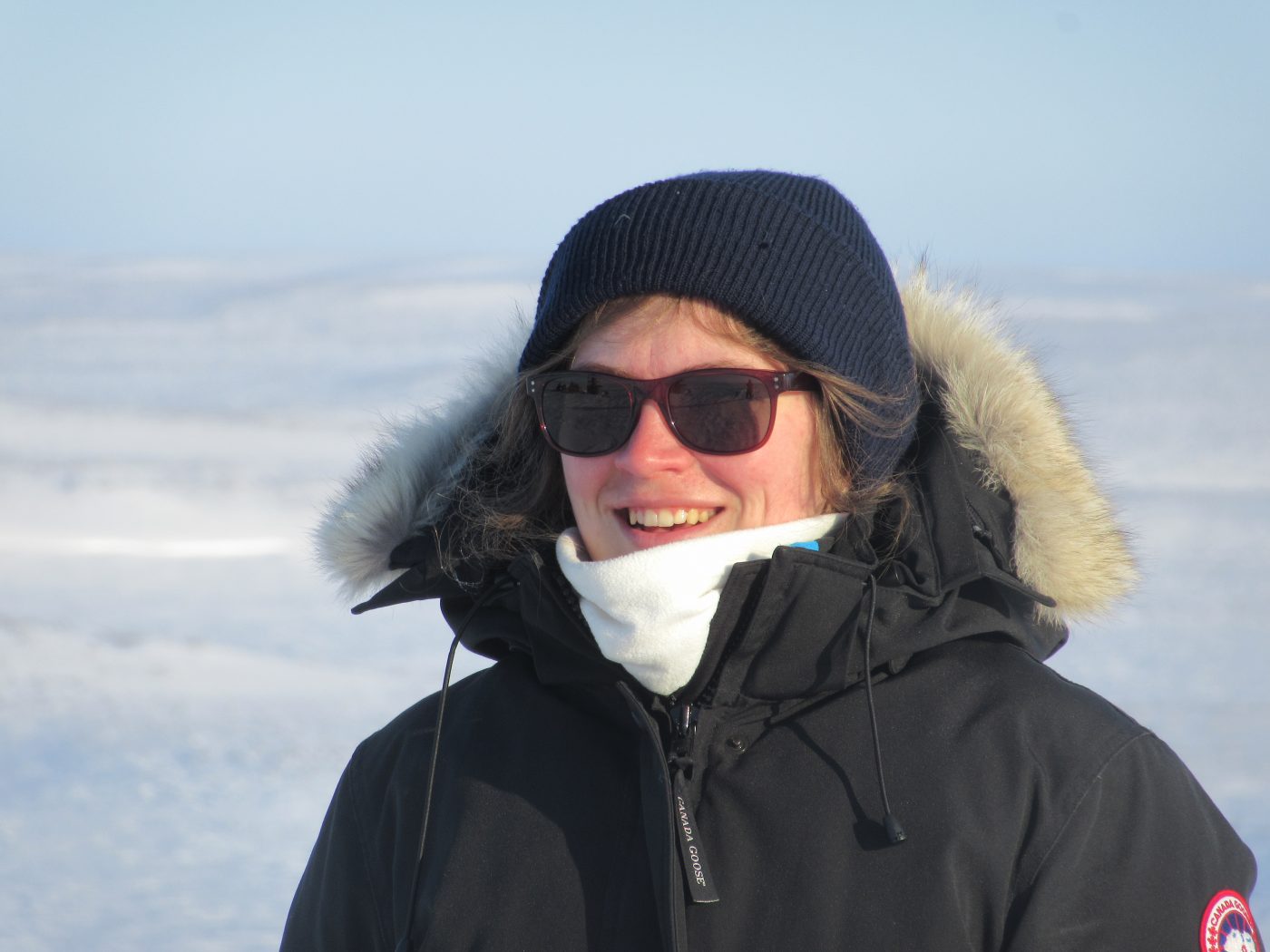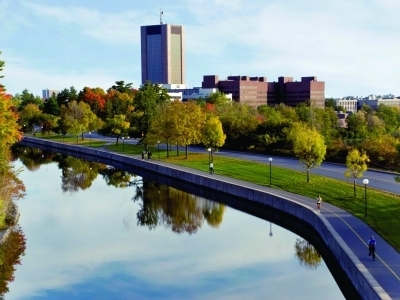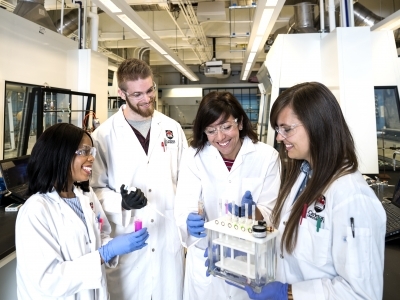Alice Wilson had always wanted to visit Canada’s North. Now, the Carleton MSc in Geography student conducts research on Richards Island near the Beaufort Sea, 100 km north of the community of Inuvik in the Northwest Territories.

It is a remote research site, only accessible by helicopter, with no running water or electricity.
“I absolutely love the remoteness of my field site, where I get to know the environment intimately,” said Wilson.
While at the research site Wilson has seen reindeer, ptarmigan, sandhill cranes, one grizzly bear, and of course, lots of mosquitoes.
The research site allows Wilson to conduct unique research because it allows for long-term monitoring of an Arctic environment.
Wilson is researching how vegetation change influences permafrost in the Arctic. Permafrost is ground that remains at or below zero degrees Celsius for two or more years.
“Permafrost thaw is an issue for infrastructure if the ground loses its strength, and for climate if carbon that was frozen in the permafrost becomes available due to thaw,” explained Wilson.
Wilson has spent two summers in the western Arctic researching this.
“The largest challenge with field work is the elements. You always need to account for bad weather days and unexpected hurdles,” said Wilson. “I was completing extensive vegetation surveys in the lake basin, when a herd of approximately 500 reindeer came to the site for four days and ate the tops off a lot of my vegetation. This made completing work a little more challenging.”
Before pursuing a Master of Science in Geography, Wilson previously completed a BA at Carleton in Environmental Studies with minors in Geomatics and Physical Geography. She has received an Ontario Graduate Scholarship, NSERC award, and the W. Garfield Weston Award for Northern Research.
“I decided to stay at Carleton because I knew I wanted to do research on environmental systems in the Arctic with a significant portion of field work,” said Wilson. “The Carleton Geography Department has a very strong northern research group, and I love the emphasis on field work.”
Wilson first got the opportunity to visit the North to work as an undergraduate field assistant at Daring Lake Tundra Ecosystems Research Station in the Barrenlands of the Northwest Territories for three months.
Says Wilson: “Through this experience, I was able to combine my passion for travel and research. I was provided the opportunity to work on several different research projects and really enjoyed the wide variety of northern scientific research I encountered there.”
Once Wilson visited the Arctic, it was love at first sight.
“I wanted to be a part of better understanding what is currently happening and the environmental response to climate change,” said Wilson.
Wilson’s supervisors, Dr. Chris Burn and Elyn Humphreys have allowed Wilson to shape her own research project.
“Additionally, their investment in my project makes me feel supported, and drove me to conduct my best research,” said Wilson. “They’ve encouraged me to pursue opportunities outside Carleton, such as completing field courses at other universities (e.g., the University of Alaska Fairbanks and the University Centre in Svalbard), attending conferences, and applying for jobs post-graduation.”
Wilson said she appreciates. That the Department of Geography fosters a collaborative environment in which everyone knows each other.
Once Wilson completes her degree she hopes to find a job in the North, and wishes to continue conducting northern field work and research in physical geography.



